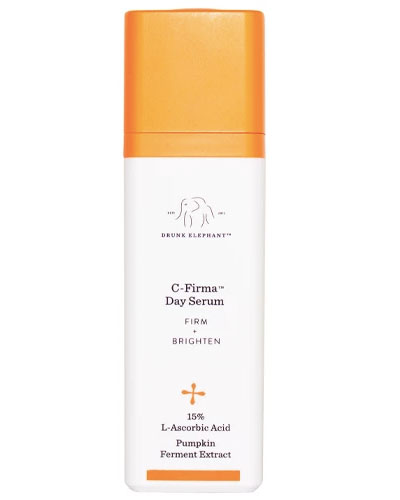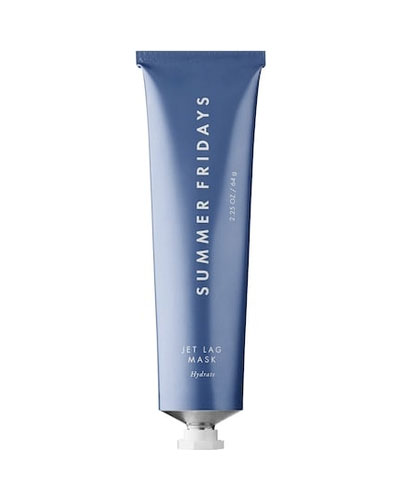Winter can be a tough season — not only are we preparing for the holidays while also staying on top of work and social obligations, we’re doing it in some pretty unforgiving weather. We all know how easy it is to get stressed out during this time of year, and the last place you want to see the effects of that is on your face.
European Wax Center is offering your first bikini, underarm, or eyebrow wax completely free—no strings attached.
My skin requires a lot of extra TLC during the winter months. If you’re tired of dealing with a dull complexion or irritation caused by dryness, here are some of my best tips for what to include in your routine to ensure that your skin is prepped for all the upcoming family photos and NYE Instagram stories!
Retinol
Since you’re not subjected to as much sun exposure in the winter, now is a good time to begin using retinol. It’s an incredibly powerful ingredient in skincare, but unfortunately can make you very sensitive in sunlight. Retinol penetrates to the deepest layers of the skin to stimulate collagen and elastin production, which results in more resilient and youthful looking skin. Always remember to wear SPF when using retinol!
Strengthening Serums
In addition to retinoic acid, winter is a good time to include a strengthening and fortifying serum into your routine. Focusing on building up your skin barrier in the winter months can ensure that by the time summer rolls around again, your skin is better equipped to fight off the irritation and sensitivities caused by heat and pollution. Look for products that contain niacinamide, lipids, or antioxidants.
Vitamin C
We love vitamin C year round, but its brightening effects become an absolute necessity during the long, dull months of winter. By alternating your nightly retinol and strengthening serum with a day time application of vitamin C, you’ll notice a more natural glow and even tone after a few weeks. Incorporate your vitamin C slowly if you have sensitive skin or active breakouts. Start by applying every 2-3 days.
Chemical Exfoliation
If colder weather makes your skin dry and itchy, incorporating a chemical exfoliant into your routine can be very beneficial to ward off the patchiness or discomfort. Chemical exfoliators helps remove dead skin without scratching or causing irritation the way scrubs can. If you opt for a AHA/BHA solution over a serum, it’s best to use them as a part of your morning routine right after cleansing your face. If instead you’d prefer an exfoliating serum, alternate it with your retinol — don’t use them at the same time.
Milky Cleansers
As much as I love double cleansing, sometimes my water-based cleansers can feel a little too striping in the winter (when my skin is already susceptible to drying out or redness). I typically switch to a really gentle creamy cleanser to follow up my oil-based cleanse so that my skin doesn’t get too stressed out.
Lip Masks
Split and cracking lips are the bane of my existence during the winter, and I’ve never learned how to not pick at them. Lip masks have become an absolute necessity to avoid inflamed cuts and discomfort.
Protective Balms
Cold weather brings with it sniffles, sneezing, and congestion. When you’re constantly wiping away the evidence of winter allergies, you can end up with some pretty unsightly redness and uncomfortable tenderness around your nose and eyes. Skin cannot heal unless it’s adequately moisturized, so keep a thick, petroleum-type balm on hand to seal in skincare and encourage damaged skin to rebuild overnight (or applied lightly throughout the day).
Facial Oils
While facial oils alone aren’t the greatest moisturizers in skincare, they do help seal in other skincare and allow for skin to successfully regenerate overnight. Oils are beneficial to all skin types, not just dry skin, because they help balance out the overproduction of oil caused by environmental dryness.
Sleeping Masks
In addition to the other hydrating layers of skin care, sleeping masks worn overnight can help calm down irritated skin that is desperate for deeper hydration. Once or twice a week, layer on a sleeping mask over all of your other skincare (including an oil if you’re using one) and allow your skin to soak in the goodness while you rest. Always be sure to double cleanse the morning after using a sleeping mask to effectively remove the sweat and oil that you will produce overnight. If you don’t effectively cleanse off a rich mask, they can stay on your skin and lead to clogged pores and breakouts.
SPF
The most important skincare product (no matter what season) becomes even more important in the winter if you live in an area that gets a lot of cloud coverage. Snow reflects UV rays, so essentially the sun is coming at you from all angles throughout the day if you live in a snowy area. While clouds might feel like they’re blocking the sun, 87 percent of UV rays still penetrate through them.

































